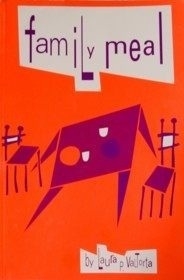By
Laura P. Valtorta
All
of us who attend South Carolina Writers’ Workshop, Columbia II, have thought
now and again that Bonnie would make a great detective. The round glasses, the
penetrating attention to detail, the no-nonsense hairstyle. She could be
another Miss Marple. Hercule Poirot. A
LIsbeth Salander – American-style.
Fiction
writers are often tempted to steal characters from the world around them. It’s
so much easier to describe the quirks and wardrobe of a real, living person than
to invent someone imaginary. Woody Allen explores this phenomenon in his
masterpiece movie, Deconstructing Harry. The women in his life become homicidal
after he tears them apart in his fiction. The fictional characters Harry
creates are better looking but internally the same as the people around him.
Harry makes little effort to disguise them. “Jane” becomes “Janet.”
Borrowing
characters from life can be constraining as well as disconcerting. If I were to
write a mystery in which Ginny killed Fred, I would be limited by the real
Ginny and the real Fred. Ginny, the killer, would have to be demonic. It might
be difficult to fit the real Ginny into that mold. Fred would have to morph
into a victim. And nobody wants to see Fred go down in flames.
When
writing is going particularly well, the characters are almost completely
fictional. My wine-growing motorcyclist named “Otis” is an invented character –
and he’s freer than many of the other characters in that novel. I can bring out
parts of myself and embody them In Otis more easily than I could if I wrote
about Sarah, the FBI agent or Mike, the Inside Trader.
As
tempting as it might be to cause Shaun to earn his living as a balloon artist,
or force Leigh to explore the Amazon, it’s much better technique to fashion a
personality out of thin air.
Every
character we create is a part of ourselves. If we squeeze that part into the
friends that surround us – like fitting meat into a sausage casing -- the
effect is less convincing than building an imaginary friend.

I agree unless the characters are based on true events. Still I would give them abilities that they may not possess in real life.
ReplyDeleteWhat an imagination! But let's not lose Fred!
ReplyDeleteReal people from history or people we don't know well are less limiting than personal acquaintances. I've kept a biography of Alice Roosevelt in my office for years with the intention of using her as the basis for a character. I also bought a book of the love letters of Wallis Simpson and the Duke of Windsor looking for ideas. No passion there in spite of their notorious love affair.
Bonnie
23But I would love to explore the Amazon!
ReplyDeleteLeigh